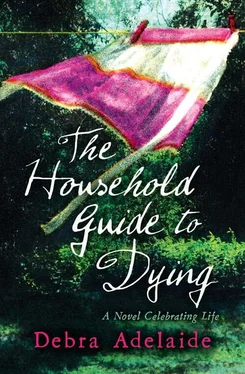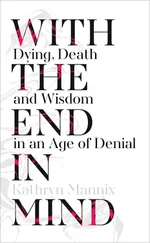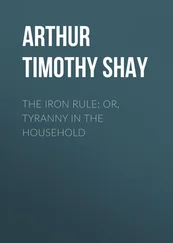So, I forgot checking under the bonnet for oil and water levels, forgot the spare tyre. Forgot phoning ahead to see which places had motels and which didn’t, which places were indeed places, not just dots on the map, specks with only a petrol station, cafe and general store all in one, a pit stop for the loneliest drivers, the emptiest of tanks, a tenminute stop surrounded by bitumen and disappointment, and on a Sunday afternoon always shut.
I didn’t fill a Thermos, or even check I had sunglasses, packets of nuts and dried fruit, two bottles of water, one for me, one for the radiator. Just walked out that door with the barest of essentials in a small bag, a couple of books, and drove off leaving the house to its own rhythms and noises. The beds were roughly made, the dishes rinsed and left in the sink, the note was on the bench.
The screen door was still swinging as I departed. Around me the birds were chirruping in their trees as if it was just another morning in May with the post delivery revving its way from up the road, with the honeysuckle still in need of trimming down by the letterbox and the white dog shit there on the nature strip along with the flattened drink can and the sodden pulp of the week before’s local paper which I’d clean away. One day.
Just not that day. Because that particular day I needed to leave while there was no one around to hold me back or ask why or talk sensibly or remind me of all that needed to be done in the next few weeks or months. Or tell me the most logical thing of all: that what I was rushing towards couldn’t be found. It was a journey I’d been putting off for years, yet now I was racing off as if it were an emergency.
As I swung out of the driveway in reverse, smooth and swift as a handshake, I waved to my neighbour over the road sweeping her front path, nodded to the postie as she puttered past, then accelerated up the street, which turned into the main street, and then into the highway, the one that would take me all the way north.
Music would be my companion. It would be so vital a presence it would almost drive the car itself. But mostly it would wash through my head, drowning the sound of my own thoughts and the details, the remorse, the despair, the pain that would persist in accompanying me on this escape. The soundtrack would charm the memories up, the ones I didn’t want but could no longer ignore. The ones that I had to take with me as I travelled back, and north. The memories, which were a soundtrack of their own.
I chose carefully. Nothing too gloomy. No Tom Waits, or I’d be driving off the road straight into the nearest tree that offered certain and complete annihilation. Bach was good but only for long unbroken stretches: the complex fugal pieces were incompatible with negotiating tricky routes or traffic in unfamiliar towns. I sorted through my box of music, most of them cassettes in cracked covers collected for car trips over the last fifteen years, most of them telling some sort of story, though none with any logic. The Willie Nelson tape with his version of ‘Graceland’ that I currently favoured (there was definitely a whole story in that). Tapes of assorted unrelated artists: Dusty Springfield, Georgie Fame, the Andrews Sisters, the Glenn Miller Band. The mindlessly cheeky George Formby, now so obscure a performer, I wondered how he ever made the transition from record to tape. Mahalia Jackson, if I was in the mood for august serenity. Country, all types. Hank Williams. Yodelling songs. Gillian Welch. Lyle Lovett. (Asleep at the Wheel I’d avoid, for obvious reasons.) It was a big collection, enough for my needs.
And there was always Elvis. I’d not played his albums for nearly fifteen years, never listened to a single song, if I could help it. But now I’d included the old cassettes in the box I was taking with me. It was time to start listening to Elvis again. But I’d wait a little longer before putting him into the player. It was going to be a long journey, and there was plenty of time for that.
So I drove north with songs like ‘Graceland’ urging me on, into the lush steamy warmth, to a place remote yet accessible, elusive yet as solid and immovable as a pyramid. There was chance here, a chance that had to be taken or it would slip away faster than a southern sunset. What was it exactly that I was taking a chance on?
I really didn’t know, even though I was bursting to get there, my heart accelerating ahead of my thoughts, and, while empty of understanding at that stage, I was still ripe with anticipation. The same feelings that had struck me when first I arrived, all those years back.
The town of Amethyst was off the map, but it was there all right, bordered by thick margins of rainforest and mountains that slowly narrowed out, stretching northward until they began to merge into the long triangle that eventually led to Cape York. The town was situated in the middle of the middle, about halfway north of the New South Wales border, and halfway west of the coast. I could get away from the south and head north without a map – anyone could, there were plenty of signs. But at a certain point, to get near the right place, I needed the map, though the name wasn’t marked. I read other names signposting the direction, and they were names that beckoned: Emerald, Sapphire, Ruby. Legendary riches.
Somewhere before the surfing nirvanas and the other lures of the coast I turned west. At some stage I turned off the soundtrack, let Hank and Frank and Mahalia and all the rest lie in their box on the floor of the car along with the tissues and takeaway wrappers and the mobile phone that I’d turn back on again when I could bear to. The cloud that had collected and settled like smog on my memories began to thin out, then lift altogether. And then I didn’t need the map. I knew without looking that a place in the middle of places with names like jewels was near where I needed to be. It wasn’t that far from Emerald, and not so far from the highway either.
Late in the afternoon on the fourth day of the journey, I glanced to my left and saw the signs and the three roadside businesses: a service station, a timber yard and, most oddly of all, a garden art place with gnomes in rows along the front fence, that indicated the turnoff to the last town on the route, Garnet, the last place before my destination. I was travelling on a rise when I saw jutting out of the trees beside the road the sign advertising Lazarus’s trailer and campervan business, three kilometres ahead. A sign about fifty years old, flaked and faded, and pitted with the usual rifle shots. After two kilometres I slowed down, keeping my eye out. There wasn’t another vehicle in sight, and I couldn’t remember passing one since the last town.
I knew I was in the right place, or near enough. The sign had said nothing about where, exactly, but I drove slowly forward again until I spotted a break in the trees to my left, and I took the turnoff past Lazarus’s collection of elderly vehicles, knowing it was the right place to go. The road wound down for a bit then started to rise. Somewhere on the very outer reaches of the range I knew I’d entered that large section of valleys and hills and sluggish little creeks posing as rivers situated between Clermont, not far ahead of me, Emerald to the south, where I’d been, and Alpha to the west, where I didn’t intend to go. The road twisted pleasantly. The sun, low and intense, pokered my eyes. I had already dropped the map on the floor of the car.
When I’d first come here over twenty years ago, a bus had dropped me at the side of the road by Lazarus’s sign. I’d walked along the road towards Amethyst, not caring how long it would take. And there was barely another car, none that I recalled. It was like entering another time frame. Maybe it was the impression of the gums shooting so high they seemed like anchors for the sky. Maybe it was the cooler air, or the spotty variable light, light that also appeared partly dark. Maybe it was the leaves that drifted down from that dense canopy, slower and more dreamily than leaves normally drop. Or maybe the bird calls far above, musical and hidden. It was timeless, other worldly. It was uncharted, and so it seemed to be invested with a corresponding fairytale quality.
Читать дальше












